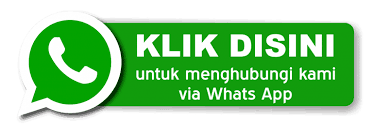Political Participation Of The Zillennial Generation In The 2024 General Election
Keywords:
Digital Media, Political Participation, ZillenialAbstract
The internet in particular is a vital component of information and communication technology for this age. They are, nevertheless, frequently perceived as the generation that is least engaged in politics and least likely to use their right to vote. Their involvement in politics is essential. The purpose of this study is to shed light on how millennials use digital media and engage in politics. Online questionnaires are distributed as part of a quantitative research methodology. According to the survey, everyone who responded, even members of the millennial generation (those between the ages of 17 and 29), uses the internet. When linked to the internet, cell phones are the most popular medium, and they are used for communication and information search for eight to twelve hours per day. The most popular digital media are also social media and online forums. The millennial generation continues to watch TV and internet for political news, despite their underestimation of political issues. Also, a very low percentage of people polled participate in politics
References
Asmarani, M., Suni, B., & Nugrahaningsih, N. (2013). Kerjasama Sosial dan Ekonomi Malaysia-Indonesia (Sosekmalindo)(Studi Kasus Pengembangan Kawasan Pariwisata di Kabupaten Sambas). Jurnal Program Magister Ilmu Sosial Universitas Tanjungpura, 1.
Aspinall, E., Fossati, D., Muhtadi, B., & Warburton, E. (2020). Elites, masses, and democratic decline in Indonesia. Democratization, 27(4), 505-526.
Fossati, D., Aspinall, E., Muhtadi, B., & Warburton, E. (2020). Ideological representation in clientelistic democracies: The Indonesian case. Electoral Studies, 63, 102111.
Lestari, I. D., & Suni, B. IMPLEMENTASI KEBIJAKAN PEMUTAKHIRAN DATA MANDIRI APARATUR SIPIL NEGARA MELALUI APLIKASI MYSAPK PADA BADAN KEPEGAWAIAN DAERAH PROVINSI KALIMANTAN BARAT. JPASDEV: Journal of Public Administration and Sociology of Development, 3(1), 397-408.
Mietzner, M., & Muhtadi, B. (2018). Explaining the 2016 Islamist mobilisation in Indonesia: Religious intolerance, militant groups and the politics of accommodation. Asian Studies Review, 42(3), 479-497.
Mietzner, M., & Muhtadi, B. (2020). The myth of pluralism. Contemporary Southeast Asia, 42(1), 58-84.
Muhtadi, B. (2009). The quest for hizbut tahrir in Indonesia. Asian Journal of Social Science, 37(4), 623-645.
Muhtadi, B. (2012). Dilema PKS Suara dan Syariah, cet. ke-3. Jakarta: KPG (Kepustakaan Populer Gramedia.
Muhtadi, B. (2013). Politik uang dan dinamika elektoral di Indonesia: Sebuah kajian awal interaksi antara party-id dan patron-klien. Jurnal Penelitian Politik, 10(1), 41-58.
Muhtadi, B. (2015). Jokowi's first year: a weak president caught between reform and oligarchic politics. Bulletin of Indonesian Economic Studies, 51(3), 349-368.
Muhtadi, B. (2019). Politik uang dan new normal dalam pemilu paska-orde baru. Integritas: Jurnal Antikorupsi, 5(1), 55-74.
Muhtadi, B. (2019). Vote buying in Indonesia: The mechanics of electoral bribery (p. 318). Springer Nature.
Suhardi, A. J., Suni, B., & Syafei, M. (2013). Kepemimpinan Camat Dalam Meningkatkan Kinerja Pegawai Pada Kantor Camat Bunguran Tengah Kabupatan Natuna. Jurnal Tesis PMIS-UNTAN-PSIAN-2013.
Suni, B., & Rohilie, H. F. (2021). EVALUASI KEBIJAKAN PENGELOLAAN HEART OF BORNEO DAN UPAYA PENJAGAAN KELESTARIAN HUTAN DI KALIMANTAN BARAT. JOURNAL OF GOVERNMENT (Kajian Manajemen Pemerintahan dan Otonomi Daerah), 6(2), 111-130.
Suni, B., Musa, P., Suryansyah, G., Hermansyah, H., & Herlan, H. (2007). Sejarah Melayu Sambas.
Downloads
Published
How to Cite
Issue
Section
License
Copyright (c) 2024 Barkan Suni

This work is licensed under a Creative Commons Attribution-ShareAlike 4.0 International License.



